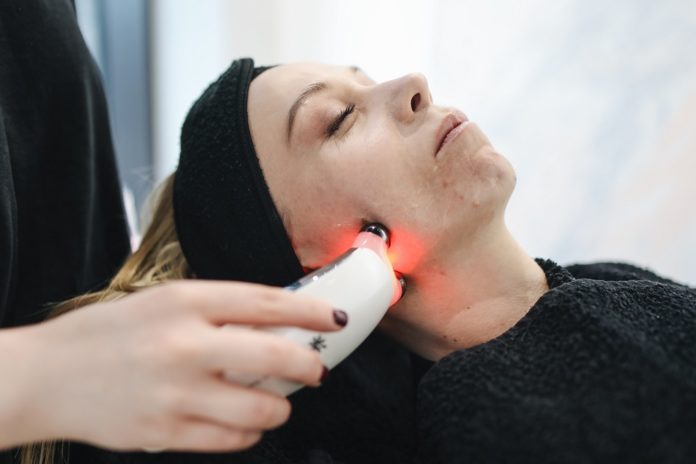Dermatology is a medicine’s branch that deals with the skin. It is the study of the skin and how it functions and responds to various diseases. Dermatology uses various techniques, such as diagnosis, prevention, and treatment, to heal the skin.

The skin is a very sensitive organ, and it responds very poorly to just any ailment you can get; it needs to be taken care of. The reason why dermatology is so necessary is that the skin is one of the largest organs on the body, and it is exposed to various forms of chemicals, medicines, cosmetics, etc. Therefore, it needs to be protected from these things. Some of the ailments that dermatology deals with our acne, eczema, psoriasis, burns, cuts, irritations, acne scars, acne, xeroderma, eczema, fungating ulcers, insect bites, poison ivy, scabies, wounds, warts, skin cancer, etc. When a patient has these problems, he will need a dermatologist who will help him take care of his problem. Dermatologists usually use a lot of tools and equipment to help them treat patients.
What follows are important tips when to see a dermatologist?
WHEN TO SEE A DERMATOLOGIST?
You should go to see a dermatologist:
- When You Are Facing Regular Skin Problem

You should visit a dermatologist, especially when you are facing any sort of skin problem. You should tell your dermatologist basic things like: “My hands are itching”my body feels really tight.” Let the dermatologist understand you and be responsible for you so that you can progress.
- When Your Skin Problem Persists for Long

If you are suffering from a skin problem that’s been persisting for long, then before it turns into chronic skin condition, you should visit a dermatologist. Don’t just touch things to make them feel better. You should also do your homework on your skin. The dermatologist should inform you of any problems you may have with your skin.
- When You Are Suffering from Chronic Skin Condition

In worst-case scenarios, a chronic skin condition leads to skin cancer. Some amongst the symptoms of skin cancer include a mole that changes its color and bleeds sometimes. Or it may appear as a small skin lesion with an irregular border. The portions of the skin lesion may appear as pink, red, blue, white, or blue-black.
- When You Are Suffering from Poison Ivy
Poison ivy is a type of rash, i.e., caused due to oily resin named urushiol. The rash is named poison ivy because it happens because of the leaves of poison ivy. The sticky resin of the leaves attaches to your skin and causes the rash. You should instantly opt for seeing a doctor if you are facing any such problem.
- When You Are Facing Problems Related to Skin Hair and Nails

You should not delay in seeing a dermatologist if you are facing any sort of skin hair and nails problem. The problem can be related to hair loss, any of the irregular skin conditions, or problems in your nails. If you observe any white marks or any unusual activity happening on your nails, then you should quickly go to consult with a dermatologist. Also, if you are suffering from hair loss problems for long, then also you should opt for visiting dermatologists. In such scenarios, the board certified dermatologist will suggest you some skin care and hair care routines that you’ll have to follow.
- When You Have Had Sun Exposure

If you have gone through sun exposure, then in related skin conditions, you should definitely consult with a board certified dermatologist. The dermatological conditions related to sun exposure may give birth to other issues also, so better have a check-up with a dermatologist having board certification. In such a case, you will have to follow the skin care routine suggested by the dermatologist.
THE TREATMENTS THAT A DERMATOLOGIST HAVING BOARD CERTIFICATION MAY SUGGEST YOU

When any of the dermatological conditions arise in your body, the reason may vary accordingly. Sometimes it can be due to toxins in your blood vessels, or due to the presence of impurities in your blood vessels. Sometimes, it may be due to a lack of any vitamin or mineral in your body. And, sometimes, it can be due to your reckless lifestyle. The dermatologist who is board certified and owns relation with the American Academy of dermatology will suggest you any of the things:
- Proper nutrition is very important. In order to take good care of the skin and hair of yours, you need to take a proper diet. Proper care and proper nutrition should be your basic advice. Eating well is a lot easier than paying for all the things you have to do with the skin.
- Good moisturizers should be your basic advice for the skin. You should look for those special moisturizers that work best on your skin because if you use them, they should help you keep the good looks of your skin.
- People with very dry skin need to pay special attention. It is a good idea to find something that will moisturize dry skin and improve its ability to retain moisture. Dry skin can irritate the skin around the eyes and the nose, and there is a possibility that this will cause other parts to become irritated as well.
- Body care products for all types of skin or a particular type of skin can be suggested. There are products for oily, dry, or combination skin. But it is especially important for everyone to use the best skin products they can afford.
- For some issues that can’t be just cured by suggesting some diet changes, oral medication is suggested by the dermatologist. The oral medication may include some supplements which will get eventually better up the health of your overall skin and hair. You should be aware of the disadvantages of taking oral medication for a long time before you start taking it.
ALL ABOUT FINDING A GOOD DERMATOLOGIST

There are many factors that you need to consider in the search for a dermatologist. The main goal of dermatology is to cure skin diseases.
Acne is one amongst the most common skin diseases among teens and adults. The skin problems are caused by various factors such as dirt, sweat, hormones, and parasites. These factors all tend to accumulate in the pores and blocks the blood supply for your skin. The blocked blood supply causes the skin cells to secrete and waste out of your body.
How to find a good dermatologist? First, you need to gather information about dermatology treatments available.
- Ask You Near and Dear Ones and Use Referential Information
Another way to look for an appropriate doctor is to ask friends who have used the doctor’s services in the past. In most cases, a friend of a friend is going to be a great resource to find a good dermatologist.
- Explore Various Online Platforms
How to find a good dermatologist can be done by doing an online search. Some places offer a free consultation where you can ask questions. They can give you suggestions as to which treatment is most suited for your skin condition.
After getting a list of dermatologists, check:
- Whether the Dermatologist is Well-Experienced
But some skin conditions such as acne are not curable by the simple application of creams and lotions. Sometimes it takes professional and experienced help to get rid of these skin problems. Your dermatologist must be experienced, skilled, and professional enough to perform all the necessary treatments for you.
- Whether the Dermatologist is Able to Treat Different Skin Conditions
Your dermatologist will be able to recommend a suitable treatment according to your different skin conditions. Some of the common skin conditions that dermatologists diagnose include acne, eczema, psoriasis, seborrheic dermatitis, shingles, lichen planus, dermatitis, rosacea, and hyperpigmentation (also known as freckles). These skin problems may require different types of treatments.
Some doctors believe that the most important element in any skin problem is the way in which the skin is affected. In dermatology, they usually separate the three levels of the skin (surface, subcutaneous, and dermis) into four categories based on the way in which the skin is affected. Skin deep eczema can be treated by a special cream. Skin-deep eczema can be treated with certain medications. Deep dry skin is a major problem. It can be cured by applying a moisturizer cream. This can be very costly for some people, so the first thing to do when trying to find a good dermatologist is to determine whether the doctor is specialized in deep dry skin or not.
How to find a good dermatologist depends on your specific needs. As mentioned above, there are certain conditions where dermatologists may need to take an expert opinion. They use different techniques to detect skin problems and diagnose them.
PEDIATRIC DERMATOLOGIST
What is pediatric dermatology? A pediatric dermatologist is an expert in skin care and skin diseases of the child. They help in the treatment of such skin problems as eczema, psoriasis, acne, hair loss, skin allergy, and eczema. In general, they use natural products like botanical extracts and antioxidants in treating such skin disorders.

A pediatric dermatologist in pediatric care is very active in treating childhood skin disorders like asthma, skin rash, recurrent acne, itching, and bleeding. The pediatric dermatologist plays a major role in determining the severity of the disorder. He or she will use various techniques and modalities like Laser and Electron Beam to cure the disorder. A dermatologist treats skin disorders by performing various procedures and medications like Biopsy, laser resurfacing, submission, Laser Injection, Collagen production, Subcision, etc. Sometimes, they also prescribe certain medications to minimize the chances of developing skin disease in the future. A pediatric dermatologist is a doctor who will advise you regarding your child’s health. Their main task is to know about the disease, its symptoms, and recommend the appropriate treatment for the patient.
Pediatrics is the medicine’s branch that deals with children. It is also known as Dermatology. The task of pediatric dermatologists includes assessment, diagnosis, treatment, and prevention of skin diseases of the child. This field has received great attention from the health care industry. It involves screening of skin for signs of diseases and discovering these diseases early enough to avoid complications and maximize the benefits.

















